第77章
Where action (consequently activity and force) exists, substance also must exist, and in it alone must be sought the seat of that fruitful source of phenomena.Very well.But if we are called upon to explain what we mean by substance, and wish to avoid the vice of reasoning in a circle, the answer is by no means so easy.How shall we conclude immediately from the action to the permanence of that which acts, this being nevertheless an essential and peculiar criterion of substance (phenomenon)? But after what has been said above, the solution of this question becomes easy enough, although by the common mode of procedure- merely analysing our conceptions- it would be quite impossible.The conception of action indicates the relation of the subject of causality to the effect.Now because all effect consists in that which happens, therefore in the changeable, the last subject thereof is the permanent, as the substratum of all that changes, that is, substance.For according to the principle of causality, actions are always the first ground of all change in phenomena and, consequently, cannot be a property of a subject which itself changes, because if this were the case, other actions and another subject would be necessary to determine this change.From all this it results that action alone, as an empirical criterion, is a sufficient proof of the presence of substantiality, without any necessity on my part of endeavouring to discover the permanence of substance by a comparison.Besides, by this mode of induction we could not attain to the completeness which the magnitude and strict universality of the conception requires.For that the primary subject of the causality of all arising and passing away, all origin and extinction, cannot itself (in the sphere of phenomena) arise and pass away, is a sound and safe conclusion, a conclusion which leads us to the conception of empirical necessity and permanence in existence, and consequently to the conception of a substance as phenomenon.
When something happens, the mere fact of the occurrence, without regard to that which occurs, is an object requiring investigation.The transition from the non-being of a state into the existence of it, supposing that this state contains no quality which previously existed in the phenomenon, is a fact of itself demanding inquiry.Such an event, as has been shown in No.A, does not concern substance (for substance does not thus originate), but its condition or state.It is therefore only change, and not origin from nothing.If this origin be regarded as the effect of a foreign cause, it is termed creation, which cannot be admitted as an event among phenomena, because the very possibility of it would annihilate the unity of experience.If, however, I regard all things not as phenomena, but as things in themselves and objects of understanding alone, they, although substances, may be considered as dependent, in respect of their existence, on a foreign cause.But this would require a very different meaning in the words, a meaning which could not apply to phenomena as objects of possible experience.
How a thing can be changed, how it is possible that upon one state existing in one point of time, an opposite state should follow in another point of time- of this we have not the smallest conception a priori.There is requisite for this the knowledge of real powers, which can only be given empirically; for example, knowledge of moving forces, or, in other words, of certain successive phenomena (as movements) which indicate the presence of such forces.But the form of every change, the condition under which alone it can take place as the coming into existence of another state (be the content of the change, that is, the state which is changed, what it may), and consequently the succession of the states themselves can very well be considered a priori, in relation to the law of causality and the conditions of time.**It must be remarked that I do not speak of the change of certain relations, but of the change of the state.Thus, when a body moves in a uniform manner, it does not change its state (of motion); but only when all motion increases or decreases.
When a substance passes from one state, a, into another state, b, the point of time in which the latter exists is different from, and subsequent to that in which the former existed.In like manner, the second state, as reality (in the phenomenon), differs from the first, in which the reality of the second did not exist, as b from zero.That is to say, if the state, b, differs from the state, a, only in respect to quantity, the change is a coming into existence of b -a, which in the former state did not exist, and in relation to which that state is = O.